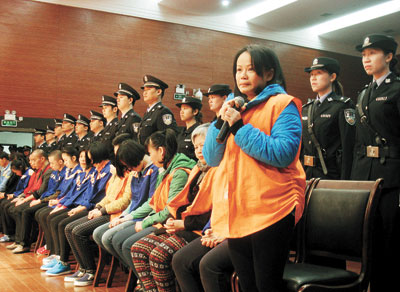
Liu Minxia
mllmx@msn.com
SHENZHEN needs to improve its medical services at local hospitals by offering English services, updating its registration system, and being more aware of protecting patients’ privacy in order to be more internationally friendly, several international citizens living in the city have told Shenzhen Daily.
Poor sanitation, long lines, and not enough cooperation with international insurance companies at local hospitals are among other things that annoy patients from other countries.
Almost all international citizens interviewed listed the language barrier as a major issue preventing them from accessing and trusting medical services in Shenzhen.
Tony Sutton, who has stayed in Shenzhen for eight years, has had two eye operations done at a local hospital. “I have had many visits with dentists and doctors here in Shenzhen. You have to basically close your eyes to the conditions, which remind me of U.K. hospitals in the late 50s,” said Sutton. “A reliable translator is a must. No debates.”
“Doctors in Shenzhen for the most part do not speak English and it is hard to translate medical terminology or the names of medicines,” said Robert Sowa, an English teacher who prefers to fly back to the United States when he needs serious medical attention. “I always take a Chinese person [with me] to talk to the doctor, but as I said it is hard to translate.”
If a hospital doesn’t have medical practitioners who can speak English, it should hire medical interpreters or have volunteers to translate, many of those interviewed suggested.
Privacy protection is also an issue. “During your visits [to a doctor], anyone can wander into your examination room,” said Sutton, who jokingly compared the examination room to a zoo.
American Charles Kirtley, who was suffering from a muscular disorder in 2011, said he lived in the hallways for the first few days in the hospital and that he became skeptical after being diagnosed with a nutritional deficiency. So Kirtley searched online to try to diagnose himself. “The head doctor was livid that I would try to diagnose myself when I was not a trained medical professional,” said Kirtley. “He compared my behavior to a guest telling a host how to run their private home. There seemed to be an unwavering dedication to hierarchy, but a distinct lack of devotion to genuine medical science or human empathy. Speaking of being a guest, I felt we patients were at the bottom of the hospital hierarchy.”
(Continued on P2)
Many also complained that the system of registering first and then paying afterwards for prescriptions is difficult to understand.
“It’s a very ancient system,” said Sutton. “First, you check in and pay a small fee. Second, see a doctor. Third, you go and pay for what the doctor recommends. Forth, you go back to see the same doctor for the recommended treatment, and then receive the treatment. At the end, if you need prescriptions, you go pay and then collect.”
Alan Brown, a businessman from the United Kingdom, also said he was confused in the beginning by the registration and payment systems and only managed to get by with lots of help from others.
A nationwide survey in 2013 showed that Shenzhen was the third most attractive Chinese city after Beijing and Shanghai to international citizens and the number of international residents in Shenzhen has been on the rise. A 2013 city government document showed that Shenzhen had about 26,000 long-term international residents while international residents living in the city for a short term exceeded 1 million. Shenzhen receives more than 7.8 million international visitors every year, it said.
In spite of its vast shopping malls and five star hotels, Shenzhen will not be recognized as a truly international city until foreign guests are treated like guests in exchange for acting like them, Kirtley said.
|

